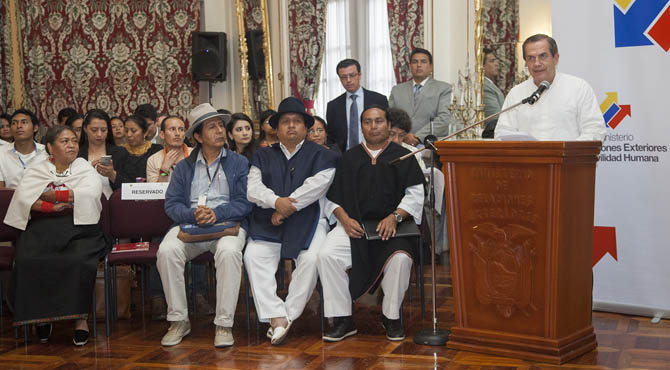
In Ecuador, presidential decree 60 of 2009 sought to promote the employment of members of the peoples and nationalities of Ecuador in public institutions in the same proportion as their percentage in the census of 2010. In addition, some progressive Latin American governments promoted a new approach to international relations based on the so-called "peoples’ diplomacy" (diplomacia de los pueblos) (Díaz Martínez 2013), within the framework of Good Living (Buen Vivir, Sumak Kawsay or Suma Qamaña). In this context, in 2012 and 2013, the Ministry of Foreign Affairs of Ecuador promoted an affirmative action policy to incorporate indigenous people, Afro-Ecuadorians and Montubios into the ranks of new officials in the Foreign Ministry. In effect, approximately half of the new diplomats belonged to these groups (187 indigenous, Afro-Ecuadorian or Montubio diplomats). This policy aimed to change a diplomatic service that was seen as elitist and exclusive.
However, this affirmative action met with several problems in its design, implementation and long-term sustainability. It also encountered subtler daily practices of racism that are difficult to demonstrate. These elements could eventually compromise the possibilities of success of the new ethnic diplomats, operating in the framework of the plurinational and intercultural State.
